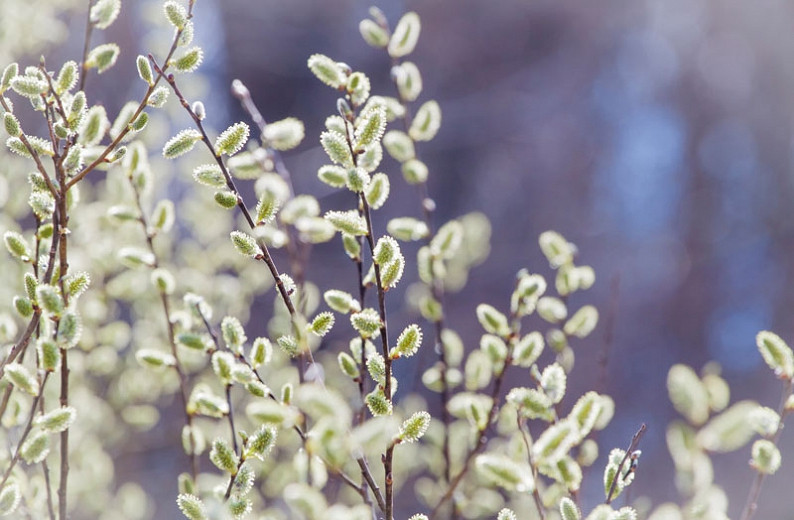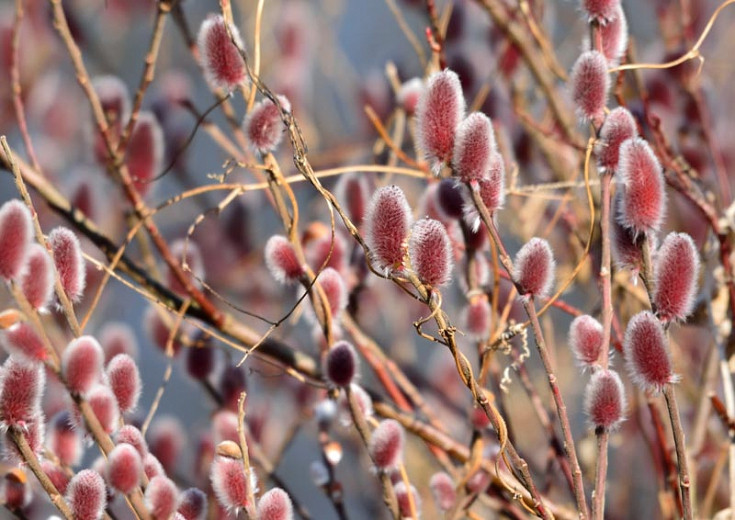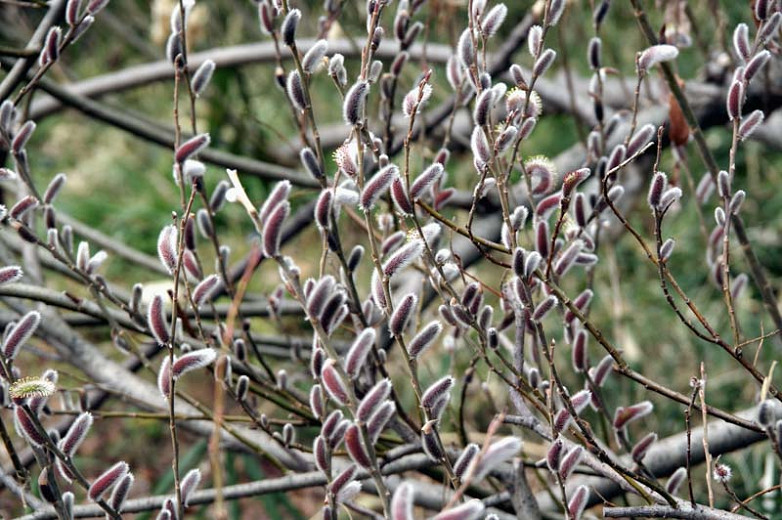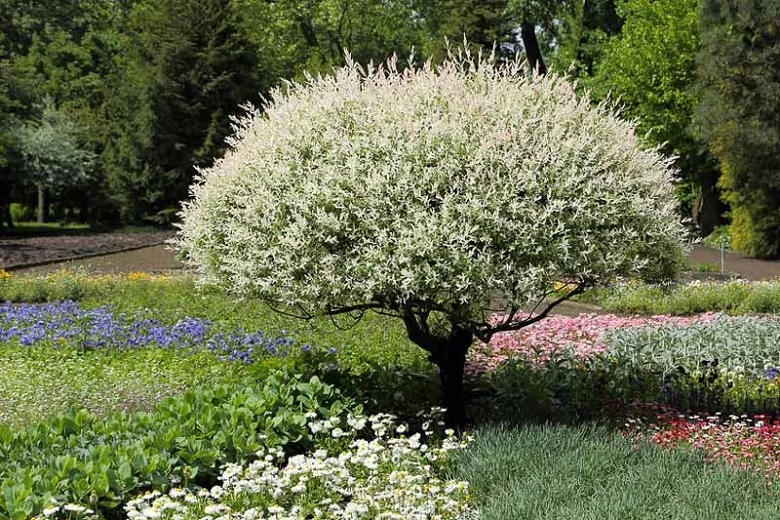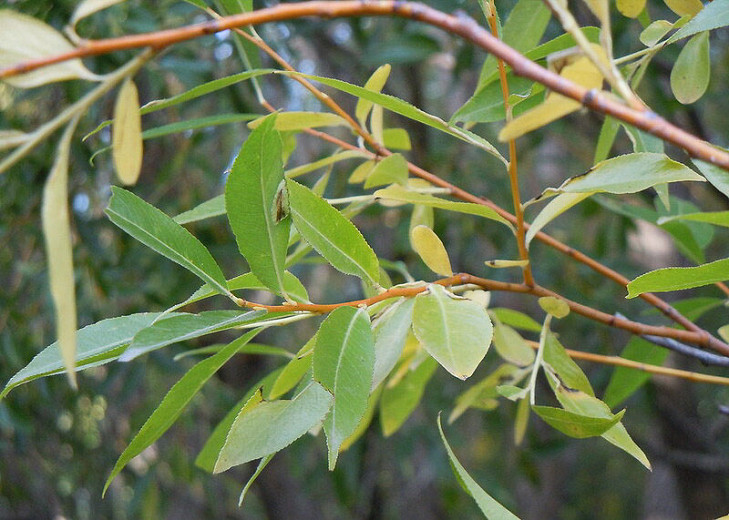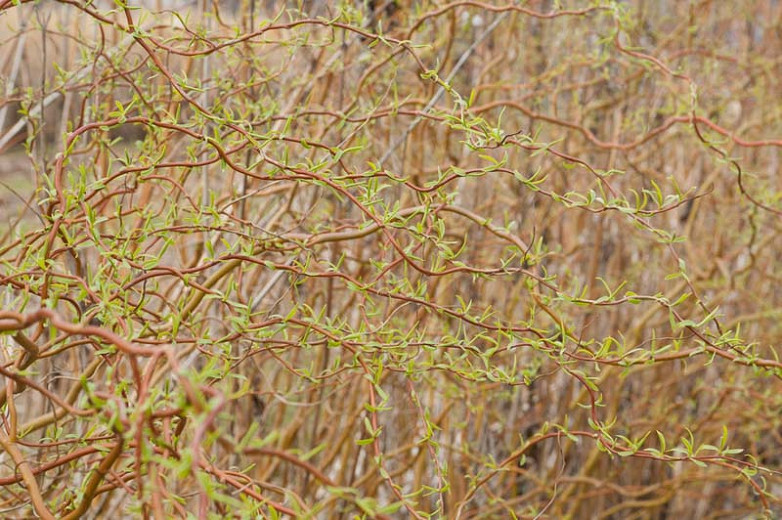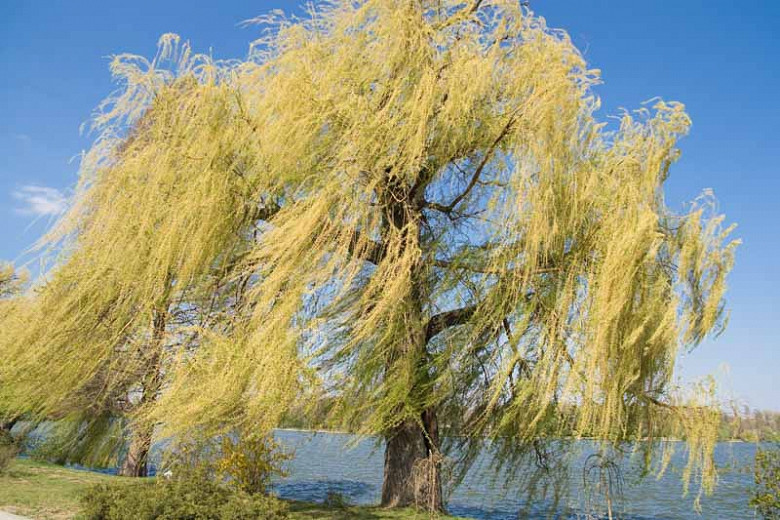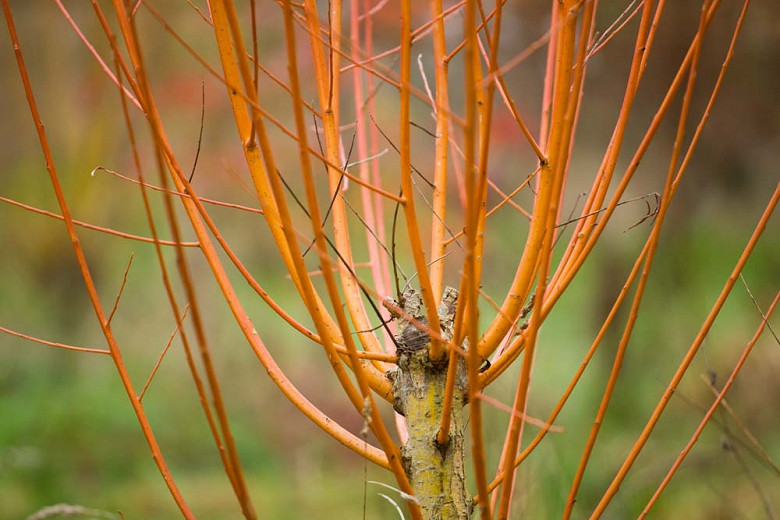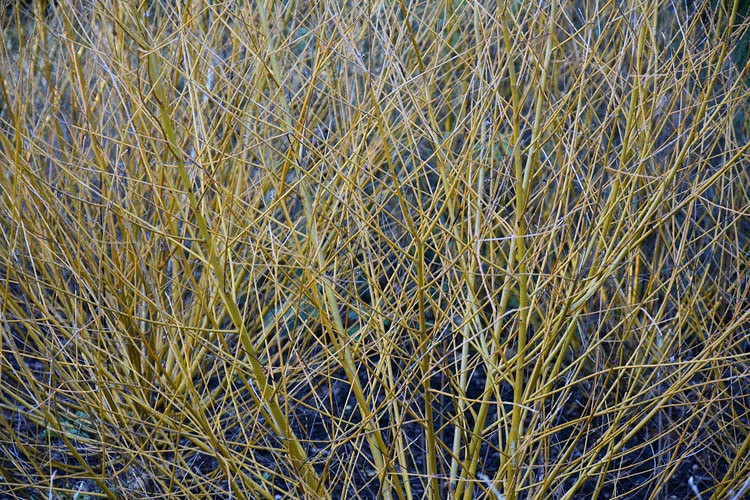Salix discolor (Pussy Willow)
Salix discolor (Pussy Willow) is a rounded large shrub or small deciduous tree boasting broadly elliptic bright green leaves adorned with bluish undersides. Before the foliage emerges in late winter or early spring, male trees produce a showy display of silky, pearl gray catkins, 1.5 in. long (3 cm), along their red-brown stems.
Salix discolor (Pussy Willow) is a rounded large shrub or small deciduous tree boasting broadly elliptic bright green leaves adorned with bluish undersides. Before the foliage emerges in late winter or early spring, male trees produce a showy display of silky, pearl gray catkins, 1.5 in. long (3 cm), along their red-brown stems. Female trees produce small green catkins. This willow is among the first flowering plants in the spring, the catkins providing a high quantity of pollen and nectar as a food source, to bees, insects or birds. Pussy Willow can be used as a windbreak and hedge. In early spring, its flowering branches are in high demand.
- Grows up to 6-15 ft. tall (2-5 m) and 4-12 ft. wide (1-4 m). May be cut to the ground every 3-5 years to keep a smaller shrub size.
- Performs best in full sun in moderately fertile, medium to wet, well-drained soils. Thrives in moist soils, but tolerates somewhat drier soils better than most other willows.
- Easy to grow, easy to care for and deer tolerant. Keep an eye out for aphids, caterpillars, leaf beetles, sawflies, willow anthracnose diseases and a rust.
- Propagate by softwood or hardwood cuttings.
- Prune as needed in late winter to early spring.
- Native to North America.
Requirements
| Hardiness | 4 – 8 |
|---|---|
| Plant Type | Shrubs, Trees |
| Plant Family | Salix – Willows |
| Exposure | Full Sun |
| Season of Interest | Spring (Early,Mid,Late)Summer (Early,Mid,Late)FallWinter |
| Height | 6' – 15' (180cm – 4.5m) |
| Spread | 4' – 12' (120cm – 3.6m) |
| Water Needs | Average, High |
| Maintenance | Low |
| Soil Type | Clay, Loam, Sand |
| Soil pH | Acid, Alkaline, Neutral |
| Soil Drainage | Moist but Well-Drained, Poorly Drained |
| Characteristics | Cut Flowers, Showy |
| Native Plants | United States, Midwest, Illinois, Indiana, Iowa, Michigan, Minnesota, Missouri, North Dakota, Ohio, South Dakota, Wisconsin, Northeast, Connecticut, Delaware, Maine, Massachusetts, Maryland, New Hampshire, New Jersey, New York, Pennsylvania, Rhode Island, Vermont, Rocky Mountains, Montana, Wyoming, Southeast, Kentucky, North Carolina, Virginia, West Virginia |
| Tolerance | Deer, Wet Soil |
| Attracts | Bees, Birds |
| Garden Uses | Hedges and Screens, Ponds and Streams |
